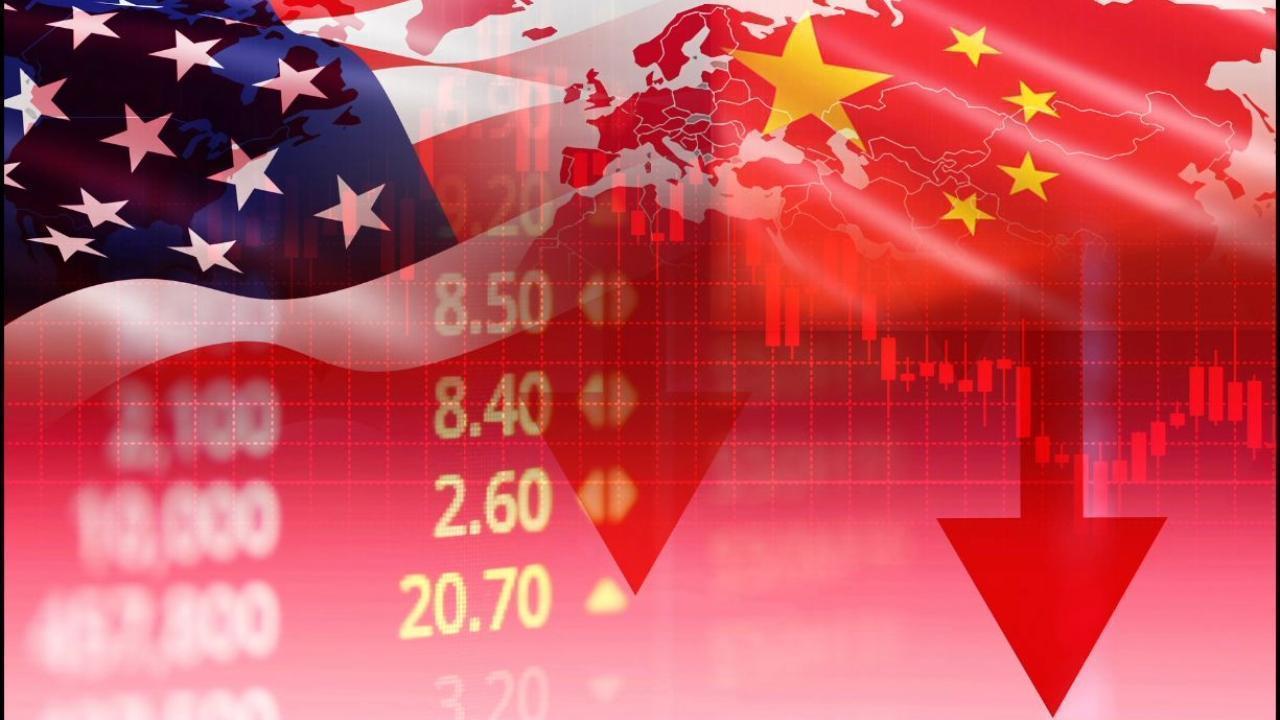You have not yet added any article to your bookmarks!

Join 10k+ people to get notified about new posts, news and tips.
Do not worry we don't spam!

Post by : Anis Farhan
In early April, the U.S. made a historic move: it slapped a 10% baseline tariff on all imports, with higher levies for specific countries (34% on China, 20–25% on EU, Japan, South Korea, and India). Dubbed the “Liberation Day” tariffs, this sweeping expansion sparked immediate backlash across global economies.
China responded swiftly, deploying 125% retaliatory tariffs across U.S. goods—escalating from 34% to 84% and finally capping at 125%. The EU matched the move, rolling out 25% duties on US imports like beef, soya, and tech equipment. Canada also joined with tariffs, challenging what it called “unjustified” U.S. levies reddit.com.
The result: a global trade standoff with severe market consequences and rising economic anxiety.
Markets reacted instantly. On the day of the U.S. announcement:
U.S. futures plunged (S&P -4.6%, Nasdaq -10%)
European stocks slumped (Stoxx Europe 600 down 0.8%)
Asian markets also felt the pressure, with Hong Kong and Shanghai dipping
Investors fled to safe havens: gold prices climbed, Treasury bond yields fell
Shockwaves spread beyond equities. Global bond markets shook, currencies fluctuated, and commodity prices—especially oil—reacted to the looming threat of supply chain disruptions .
The tariffs hit some industries harder than others:
Manufacturers like Boeing and Caterpillar saw share drops as export uncertainty rose
Tech firms faced supply chain chaos—Apple and Intel stocks wavered amid variable costs
Auto and consumer goods suffered, with U.S. vehicle prices predicted to rise and retailers like Walmart facing inflationary pressures
Luxury sectors slowed too. Bain & Co. projects a 2–5% drop in global luxury goods sales in 2025, citing uneven demand and increased costs
Companies are scrambling to adjust. Many UK firms—90% of those surveyed—are renegotiating contracts, adding force majeure clauses, and seeking alternative suppliers as U.S. tariffs disrupt trade
Auto supply chains are particularly strained. Canada’s 100% EV tariffs and China’s retaliations on agricultural goods show how dependent global industries have become
Tesla has even taken the EU to court over new EV tariffs on Chinese-made vehicles—a sign that even giants are feeling the squeeze .
Currency markets echoed the uncertainty. The U.S. dollar weakened, nearing a three-year low, while several currencies held their ground or strengthened .
Central banks from Switzerland, Norway, Sweden, and the ECB lowered interest rates, hoping to cushion economic pressures. The Fed held rates steady but warned of inflation spikes due to ongoing tariffs
The tariff war is reshaping alliances:
U.S.–China tensions eased slightly through a 90-day tariff pause (bringing mutual tariffs to 10%)—set to expire July 9
The U.S. is eyeing tariffs on India for buying Russian energy, proposing up to 500% duties under a new Bipartisan bill
In response to Trump’s 50% tariff threat, the EU announced anti-coercion measures, targeting U.S. services and tech
Legislative pushes are also underway, like the Trade Review Act, aiming to rein in executive tariff powers—a sign that U.S. lawmakers are uneasy with sweeping tariff authority
Growth slowdowns: Goldman Sachs warns tariffs could shave $1.4 trillion from global GDP
Inflation pressures: Tariffs are passing costs to consumers on cars, steel, food—the Fed knows it
Market risk: Ongoing volatility, trade spillovers, and inflation fears hint at long-term instability
Shifting strategies: Companies are globalizing supply, central banks are recalibrating, and governments are scaling treaties and legislative oversight.
The 2025 tariff war is more than headline news—it’s a structural shock that’s reverberating through markets, supply chains, currency systems, and diplomatic ties. With key dates like July 9 and rising geopolitical risk ahead, what seemed a short-term crisis is fast becoming a long-term reordering of global trade.
This article is prepared for informational and editorial purposes under Newsible Asia. Trade policies and economic impacts are current as of June 2025 and may evolve rapidly.










BCCI Central Contracts Shake-Up: Kohli, Rohit Moved to Grade B as Board Reshapes 2025–26 List
Virat Kohli and Rohit Sharma have been placed in Grade B in the BCCI’s 2025–26 central contract list

Dalal Street Spotlight: Top 10 Stocks Investors Are Watching as Markets Open on a High
Indian stock markets begin the week with strong momentum, and several blue-chip and mid-cap stocks a

Market Movers Today: Key Stocks Set To Watch In Indian Markets
Indian equity markets are poised for active trading as several major companies, including Bharti Air

Milan Welcomes the World: Inside the Grand Opening Ceremony of the 2026 Winter Olympics
The 2026 Winter Olympics opening ceremony in Milan marked a defining moment for global sport, blendi

Unfolding Market Drama: Sensex & Nifty Trade Volatility Amid Budget Fallout and India-US Trade Breakthrough
Indian equity markets exhibited high volatility this week as the 2026 Union Budget triggered sharp s

Dhurandhar 2 Teaser Countdown Ignites Fan Frenzy: All You Need to Know
The highly anticipated sequel to the blockbuster Dhurandhar is building intense excitement as the Dh